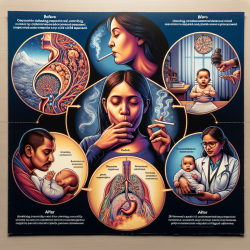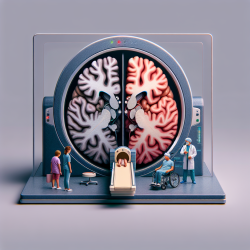Building Trust in Health Information Exchanges: A Practitioner’s Guide
As a practitioner in the field of special education or healthcare, understanding the dynamics of trust and confidentiality in data sharing is crucial. The research article titled "Trust, confidentiality, and the acceptability of sharing HIV-related patient data: lessons learned from a mixed methods study about Health Information Exchanges" provides valuable insights into how trust influences the acceptability of Health Information Exchanges (HIEs).
Key Findings from the Research
The study highlights several factors that contribute to the widespread acceptability of electronic sharing of HIV-related patient data through HIEs:
- Growing Comfort with Technology: Patients and providers are increasingly comfortable with information technologies, which enhances their willingness to share data electronically.
- Security Protocols: Confidence in the security measures used to protect data is a significant factor in building trust among stakeholders.
- Trust in Providers and Institutions: The trust patients have in their healthcare providers and institutions plays a crucial role in their acceptance of data sharing.
- Perceived Benefits: The belief that electronic data sharing benefits patient care encourages acceptance.
Implementing the Research Outcomes
Practitioners can enhance their skills by implementing the outcomes of this research in the following ways:
- Enhance Security Measures: Ensure that robust security protocols are in place to protect patient data. This includes encryption, secure access controls, and regular audits.
- Build Trust with Patients: Foster a trusting relationship with patients by being transparent about how their data will be used and the benefits of data sharing.
- Educate Stakeholders: Provide education and training to stakeholders about the security measures and benefits of HIEs to build consensus and trust.
- Engage Patients in the Process: Involve patients in the development and implementation of HIEs to address their concerns and enhance their comfort with data sharing.
Encouraging Further Research
While the study provides valuable insights, further research is needed to explore specific patient concerns and the impact of trust on the development and implementation of HIEs. Practitioners are encouraged to engage in or support research efforts to deepen the understanding of these dynamics.
To read the original research paper, please follow this link: Trust, confidentiality, and the acceptability of sharing HIV-related patient data: lessons learned from a mixed methods study about Health Information Exchanges.










